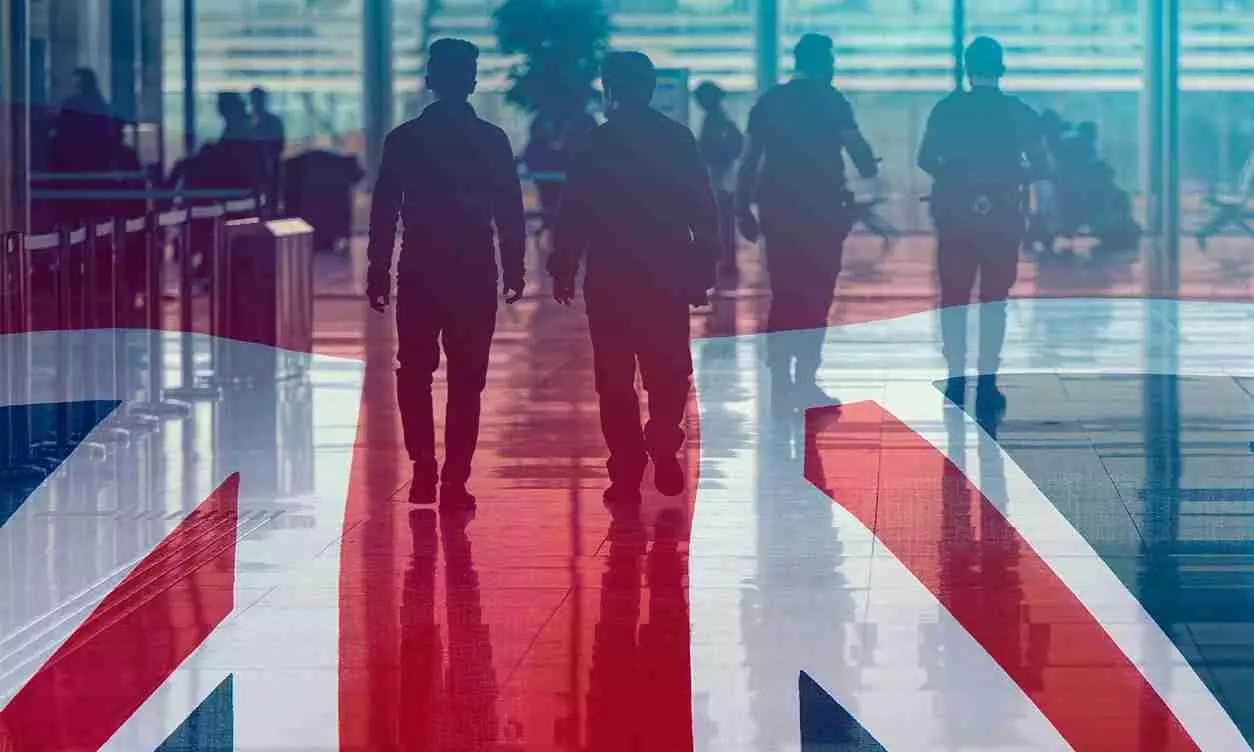
New UK visa policies undermine growth, marginalise migrants | Interview
The UK raises salary thresholds for skilled worker visas, hitting Indian doctors, scientists and researchers — even as it depends on them the most

As the UK raises salary thresholds and visa-related costs for skilled workers, researchers, health professionals, and their families are feeling the squeeze.
In this exclusive interview with The Federal, structural biologist Dr James Parkhurst outlines how the new immigration policies undermine economic growth, marginalise migrant voices, and threaten Britain’s global competitiveness in science.
What is driving the UK government's decision to raise salary thresholds for skilled visas?
From my perspective, these changes don’t reflect economic logic. Immigration is one of the best drivers of economic growth. Studies show that a more open immigration system could add trillions to the global economy. Reducing immigration dampens that potential.
The decision seems political—aimed at placating a rising far-right movement. But it won’t work. No amount of harsh policy will satisfy those elements. Instead, it keeps immigration in the spotlight and fuels further division.
Also read: US Embassy warns Indians of visa revocation after woman held for shoplifting
Given the UK’s reliance on migrant healthcare workers, how do you view the government’s rising barriers?
The NHS (National Health Service) has long suffered from underfunding. Migrants—doctors, nurses, care workers—are essential to keeping it running. These policies ignore that reality. It’s not about creating better systems; it’s about being harsh for the sake of political optics.
For example, Theresa May called her policy a “hostile environment”—you don’t use that term unless you want to appear aggressive. Unfortunately, it’s come at the cost of essential public services.
Is the post-COVID NHS still facing a backlog?
While I’m not in the healthcare system directly, my impression is yes. Media reports consistently indicate rising delays and staff shortages.
In your Guardian letter, you called the visa surcharges a “poll tax”. Why?
Because these fees are essentially a flat-rate tax just to exist here. The UK charges about ten times what European countries do. Migrants have no vote, so it’s politically easy to hike costs. They pay into services—especially the NHS—yet receive no additional benefits.
The NHS surcharge is unfair because migrants working here already fund healthcare through their taxes, just like UK citizens. It’s an extra cost for no extra service.
Also read: US embassy in India issues deportation warning to visa holders who break rules
Do these costs trap migrants in exploitative work?
Yes. If your visa is tied to your employer, leaving the job could mean leaving the country. That creates power imbalances and makes exploitation more likely. It's a real issue.
How is the scientific community responding to these immigration barriers?
In science, you need to attract the brightest minds. These visa barriers make that harder. They reduce competitiveness. At my institute, we see postdocs struggling—many accept lower salaries to pursue research. For them, visa costs can eat up 10 per cent of their income.
Even though employers cover some admin fees, the NHS surcharge still falls on the individual. It’s financially draining and demoralising.
Are skilled migrants being misrepresented in public debate?
Yes. Migrants are paradoxically blamed for both taking jobs and being a burden—which is logically impossible. In reality, migrants pay more tax than they receive in benefits. And they can’t even access many public benefits.
If businesses underpay migrant workers, the problem lies with those employers—not the migrants. The solution is tighter regulation and better wages, not harsher immigration policy.
Also read: UK family visa: How will new salary threshold rules impact Indians?
You shared how your wife has spent 13 years navigating UK visas. What’s that journey been like?
It’s been expensive and precarious. She has two master's degrees and a doctorate from top UK institutions, yet she doesn’t have indefinite leave to remain in the country. We've spent over £10,000 on fees—money we could’ve used for housing or savings.
The emotional toll is huge. One missed detail or life event—like having to return home for a family emergency—could reset the entire process. That instability is exhausting and affects mental health.
Has it changed how you view the UK’s immigration system?
Absolutely. I always supported migrants, but living through it has shown me how cruel and complex the system really is. Many UK citizens don’t understand how long and costly it is to even get close to citizenship.
How does this affect relationships where only one partner is a UK citizen?
It puts strain on the relationship. Money is a major source of stress, and the government is essentially making it harder for couples to build lives together. My wife has sometimes felt unwelcome in her own home. That hurts, and it’s hard for me to make her feel otherwise.
Also read: US to ban visas for foreign officials who censor Americans online
What reforms would you propose for a fairer immigration policy?
We should treat others as we’d want to be treated. British people retiring to Spain wouldn’t want barriers thrown in their path—migrants deserve the same respect.
On policy, migrants should be allowed to vote in local and national elections—this already happens in Wales and Scotland. That would give them a political voice.
We also need to bring visa costs in line with European norms. A working visa should cost what it actually takes to process it—not thousands of pounds for no added services. We don’t need to reinvent the wheel—just align ourselves with countries that treat migrants with dignity.
(The content above has been generated using a fine-tuned AI model. To ensure accuracy, quality, and editorial integrity, we employ a Human-In-The-Loop (HITL) process. While AI assists in creating the initial draft, our experienced editorial team carefully reviews, edits, and refines the content before publication. At The Federal, we combine the efficiency of AI with the expertise of human editors to deliver reliable and insightful journalism.)

